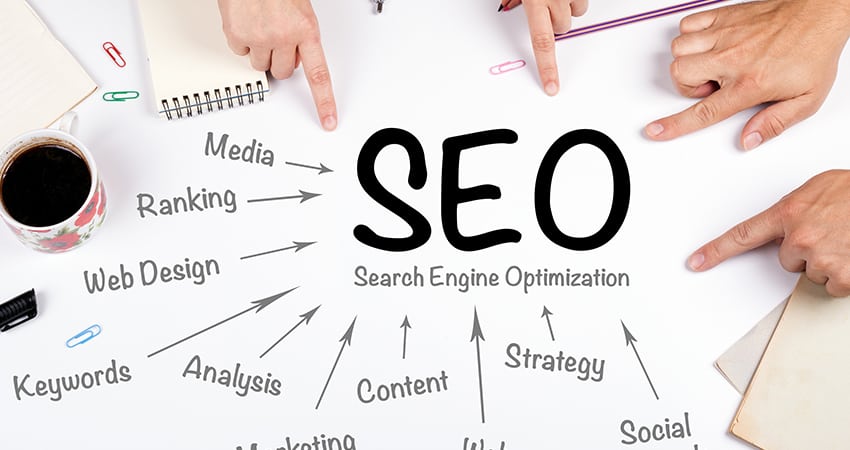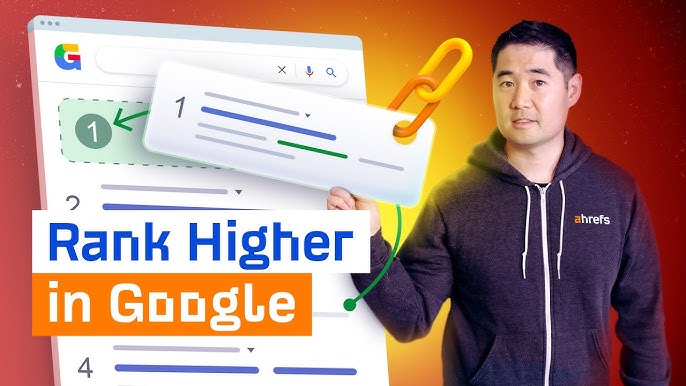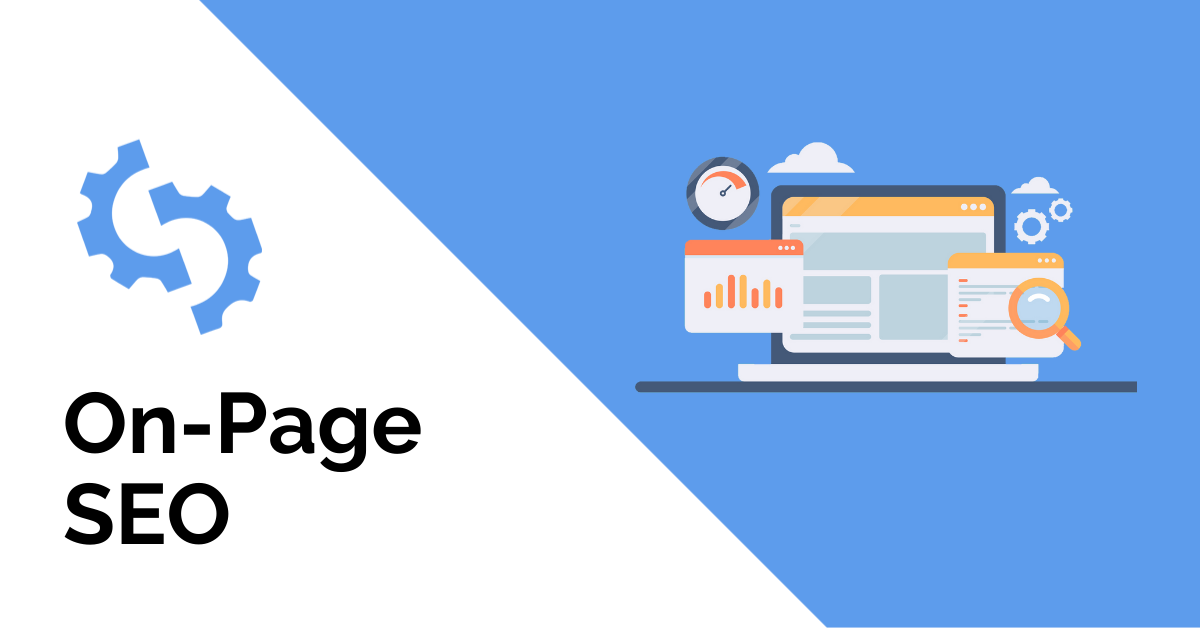How To Become An SEO Expert (Updated Guide)
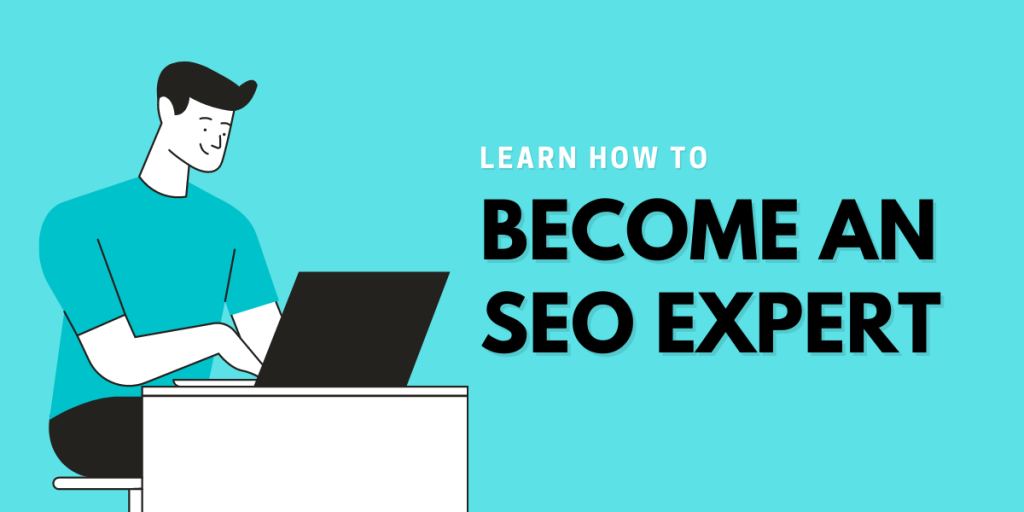
Do you want to learn how to increase your traffic and achieve higher rankings for the keywords that can generate more sales and revenue for your website? Then, you should learn everything there is to know about SEO and become an SEO Expert.
Having SEO expertise is not the sole privilege of SEO professionals. It’s a skill that can be mastered by anyone wishing to learn how to do SEO on their own. You don’t even need prior experience or a degree to work as an SEO specialist.
I’ve been practicing SEO for the last 20 years, and in this post, you will learn how to become an SEO expert.
10 Steps To Become An SEO Expert
1. Understand How Search Engines Work
Before even thinking about SEO, the first step you need to take is to familiarize yourself with how search engines work.
For many people, this may be something they already know (or think they know), but it’s always good to start with the basic concepts and work your way up to the most complicated theories.
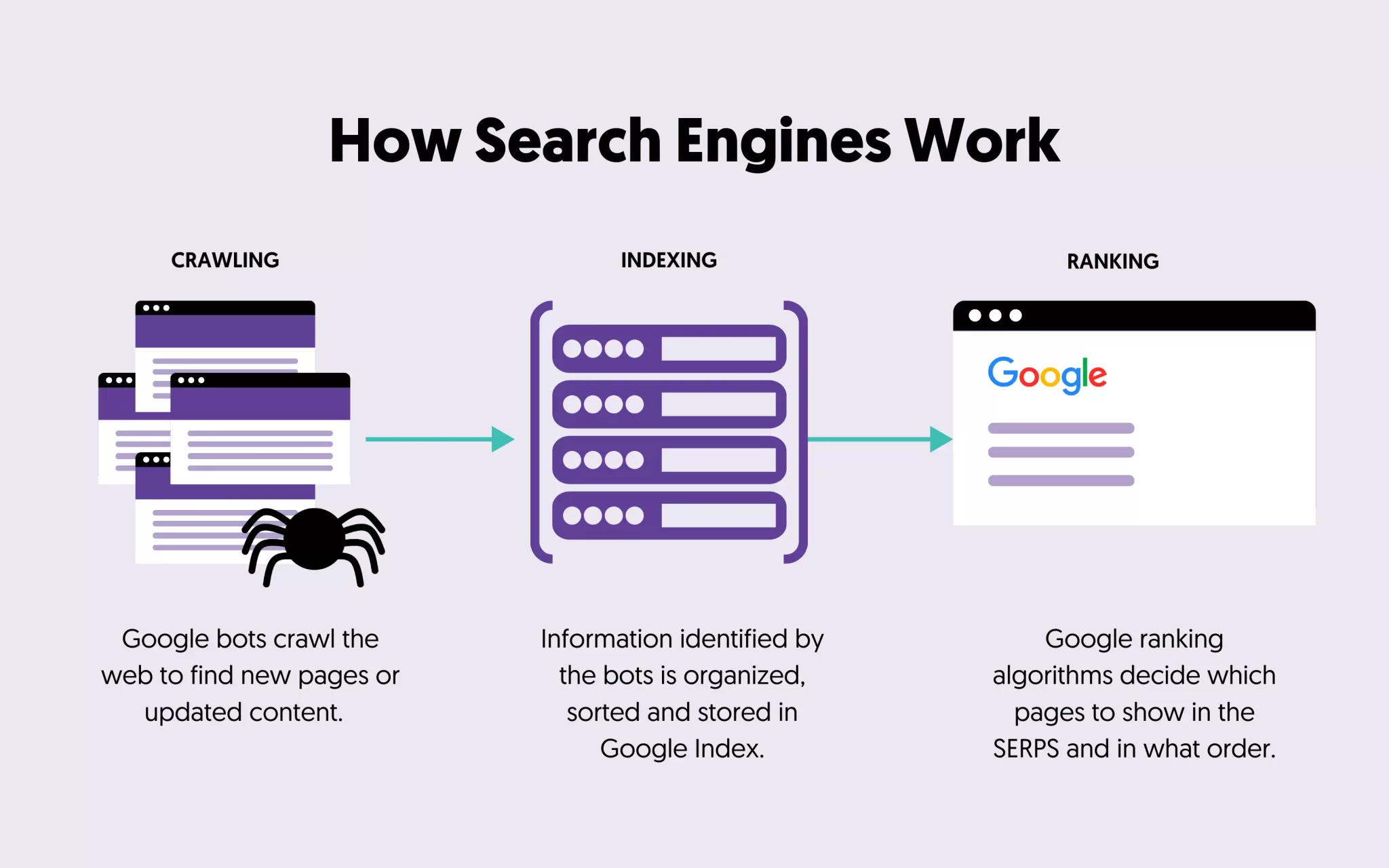
In a nutshell, search engines have three main processes:
Crawling – this is how they discover content on the web
Indexing – how they add and organize the content in their index
Ranking – how they decide which websites to show in the results (and in what order) for a given search query
As an SEO specialist, you’ll need to know how to optimize a website for each stage so that search engines can read, index, and understand a website’s content without problems.
You can get started by reading the How Search Works guide by Google and the first lesson of our SEO Course.
2. Learn Search Engine Marketing Basics
Before getting your hands dirty, you should have a general idea about all the different disciplines that make up search engine marketing. You should understand what digital marketing is and the role of SEO marketing in digital marketing campaigns.
You should have clear in your mind what to expect from SEO and what other channels you can use in conjunction with SEO to make your online presence stronger.
In summary, SEO is one of the two components of SEM (Search Engine Marketing). The main difference between the two is that SEO traffic is free while SEM traffic is paid.

With SEO, your goal is to get to the top of the organic results by publishing content that matches the user intent and by giving search engines ‘signals’ to help them with the indexing and ranking process.
With SEM, you can use PPC platforms (like Google Ads) to pay for your ads to appear on top of the paid search results.
Both methods can help you get traffic from search engines, but with SEO, you don’t have to rely on paid ads to get traffic. Once you secure high rankings for the keywords that matter for your business, you can get continuous traffic to your site 24/7.
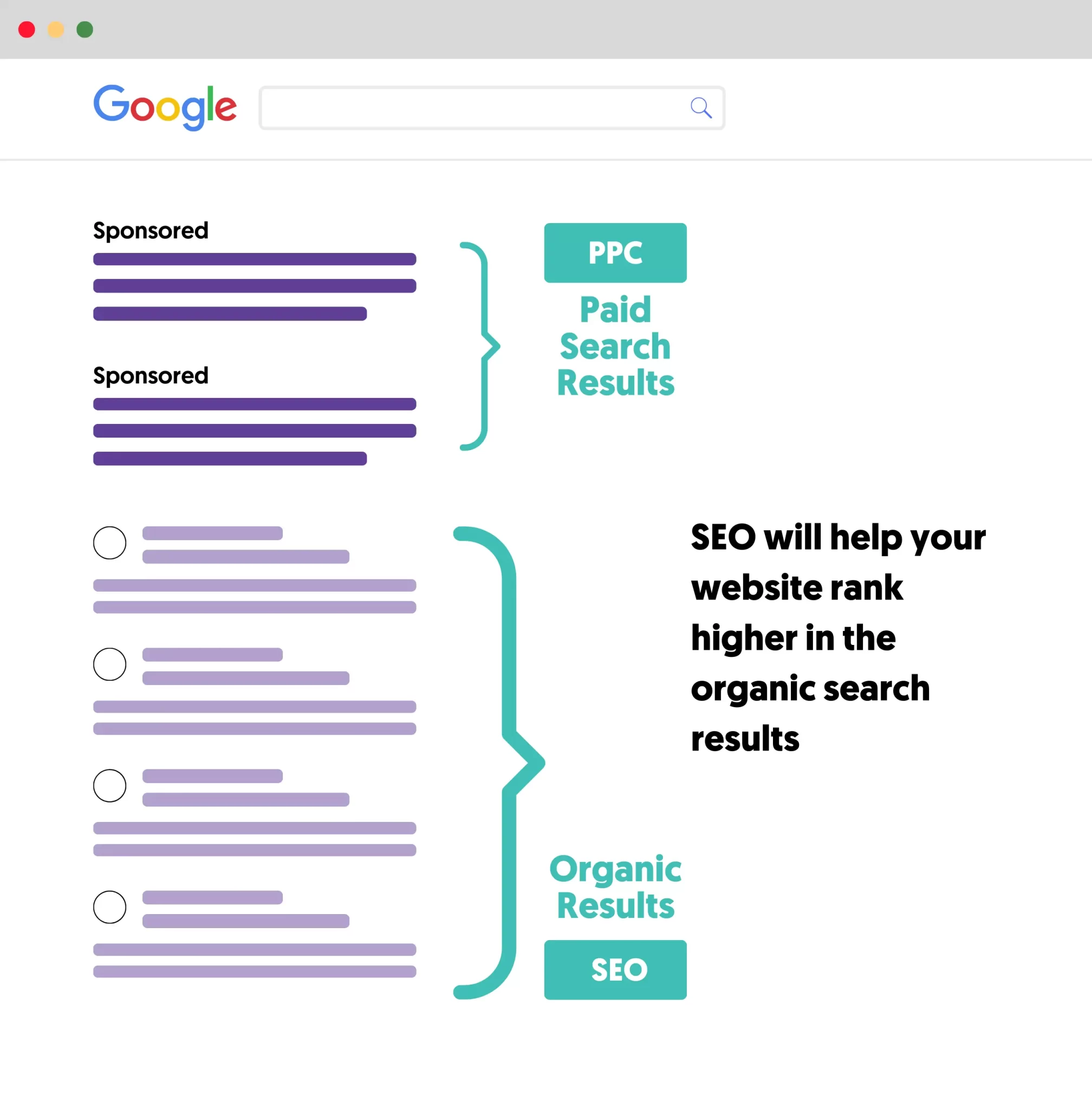
This is just one of the benefits of SEO. By getting to the top of the SERPS, you can take advantage of other benefits like brand awareness, user trust, and recognition that can help you grow your business.
3. Learn SEO Fundamentals
The next step is to dive deeper into SEO and learn the basic SEO concepts. SEO is not just about keywords and links. It’s much more than that. The true mission of SEO is to provide users with a great experience and give them exactly what they want.
Your goal is not just about getting more search engine traffic, but it’s about turning that traffic into recurring visitors and customers.
SEO has a number of types, the most important are Technical SEO, On-Page SEO, and Off-Page SEO. Your job as an SEO expert is to learn what SEO rules to apply at each stage of the SEO process to optimize your website.
Technical SEO
Technical SEO is responsible for the crawling and indexing phase. With technical SEO, you can help search engines index all important pages of your website without issues.
The most important technical SEO tasks are:
URL Canonicalization
XML Sitemap Optimization
Setting your preferred domain
Optimizing your page URLs
Optimizing your website structure
Improving your website page speed
Optimizing your website for mobile
Adding structured data markup
Optimizing for core web vitals
Finding and fixing broken links
Finding and fixing crawl errors
For some of the SEO tasks (like HTTPS and structured data), you may need the help of a developer to make the necessary changes to a website’s code.
Your job will be to monitor the proper implementation and ensure that a website is free of technical SEO errors. Once Technical SEO is set up correctly, you won’t have to deal with this again other than doing regular technical SEO audits.
You can get started by reading the SEO starter guide from Google or enrolling in a technical SEO course (there are free and paid options in the list).
On-Page SEO
On-page SEO has to do with elements found on a page. Things like content, headings, images, and videos need to be optimized so that search engines can understand their context.
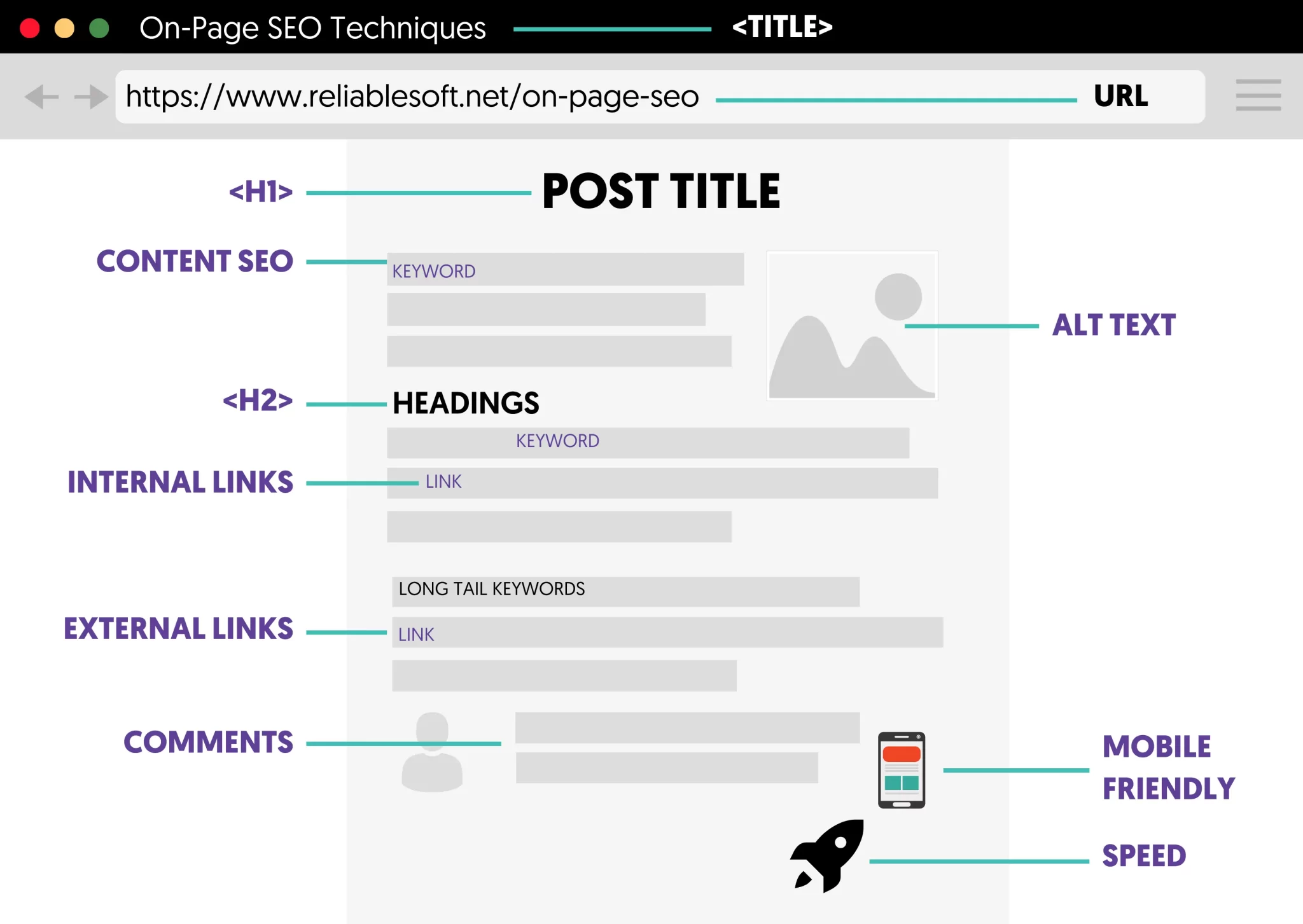
The most important on-page SEO elements are:
Page title optimization
Meta description optimization
Content optimization
Making proper use of headings (H1 tag, H2, etc)
Internal and external links
Image SEO
Besides the above factors, you need to understand that the most significant SEO factor is the quality of your content. You can create the most SEO-optimized website, but if your content is not good, it will not rank in Google.
In the context of SEO, good content has the following characteristics:
It’s original, unique, and unbiased.
It’s content that satisfies the search intent.
It’s content made for people and not search engines.
It’s content that provides a complete answer to a user’s query.
To become an expert in content creation, you must master the keyword research process and learn how to use content marketing with SEO to create content that both search engines and users want to read.
Off-Page SEO
The last process is called off-page SEO. Unlike technical and on-page SEO, Off-page SEO has to do with activities outside the boundaries of a website.
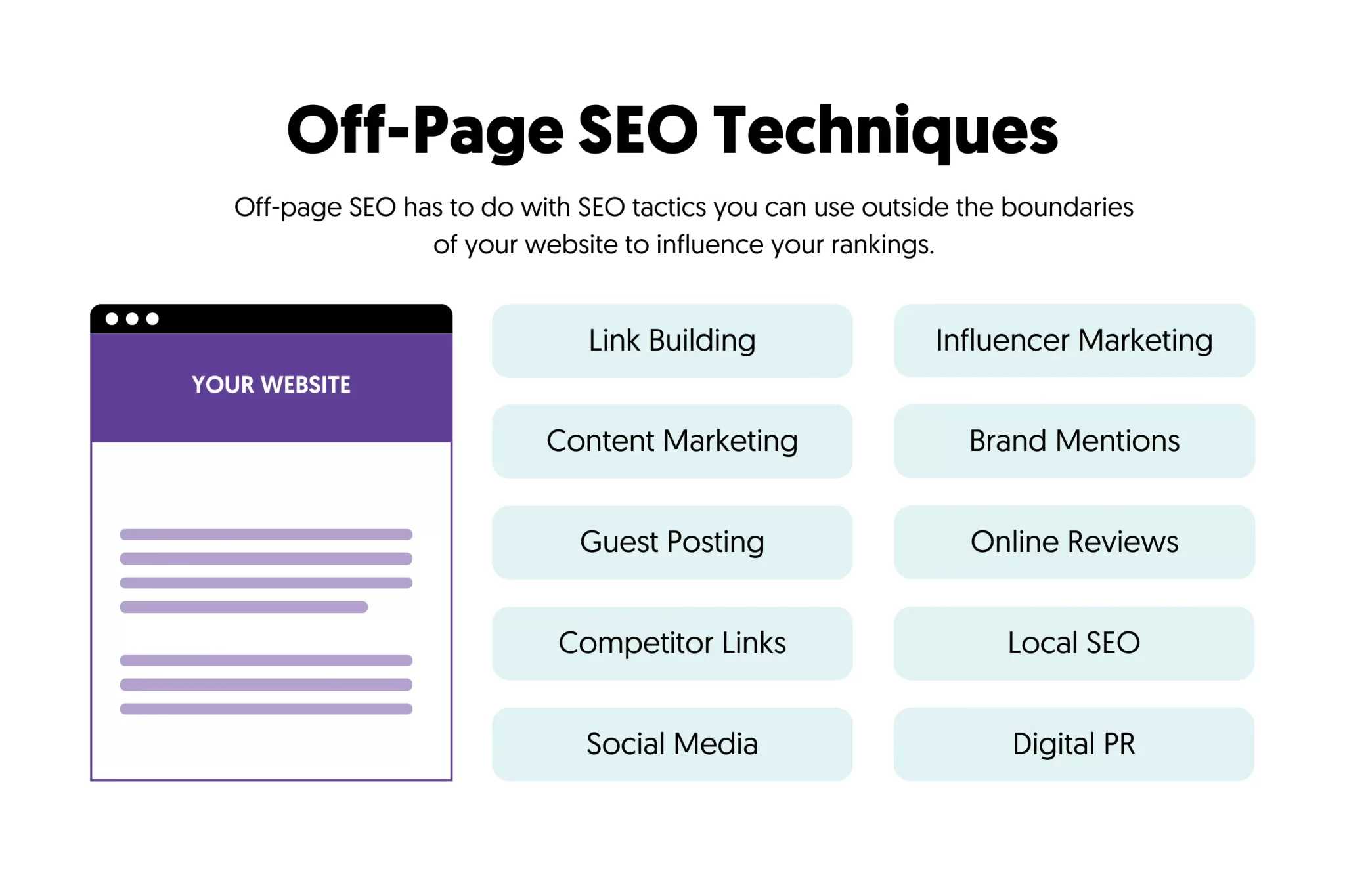
Things like link building (getting backlinks from other related websites), local SEO, and other ways of promoting your website online are factors that help search engines during the ranking process.
From experience, Off-page SEO is the most difficult part of SEO to execute because it has to do with techniques that are outside your control. Nevertheless, you must master the different methods to achieve top rankings in Google.
4. Take An SEO Training Course
Once you start learning SEO, you will realize one thing: There is too much information about SEO on the Internet and so many things to learn, and this, in the end, creates a mess.
If you decide to do this on your own without any help, you will end up with an endless list of articles to read and things to try out.
It took me years to learn SEO this way because back then, there were no formal SEO training courses or guides to read and have all the information in one place.
Nowadays, things are different. People wanting to learn SEO fast can follow a reputable course without spending endless hours searching the Internet and reading article after article.
Here are some of the best options:
The Complete SEO Course – Our SEO course has everything you need to know about SEO. It covers both basic and advanced SEO concepts. You can take the course online or download the material as PDF and learn at your own pace. It is the only SEO Course you’ll ever need to read.
SEO Training Courses – A list of good sources to learn how to tackle technical SEO, on-page SEO, off-page SEO, and content creation.
SEO Certifications – A list of reputable SEO certifications you can pursue and become a certified SEO specialist.
Google SEO Courses With Certifications – Courses focused on Google SEO.
Content Marketing Courses – Online courses to learn the different content marketing techniques.
Learn How To Use SEO Tools
What differentiates successful SEO experts is their skills in using SEO tools. The truth is you cannot do SEO alone. There is so much information to process and decisions to make, and if you try to do everything manually, you will spend your precious time analyzing numbers instead of working on tasks that can get you better results.
It’s also true that good SEO tools cost, but in the long term, the return is much more than the monthly fee you will pay for a good SEO tool.
As an SEO specialist, you need to become familiar with the following tools:
Google Search Console (Free) – Google Search Console is perhaps one of the most useful tools for SEO. It is free and can give you much information on your website’s performance on Google.
Google Analytics (Free) – Another free tool by Google. You can use Google Analytics to learn about your traffic and how users navigate your website. There are a lot of reports to explore and many metrics to analyze.
Ahrefs (Paid) – An alternative to Semrush. It comes with a monthly subscription, but it’s also one of the most respected SEO tools in the industry. It has a lot of great features to make your SEO life easier.
Google Keyword Planner (Free) – The Google keyword tool is a free keyword research tool offered by Google. You can use it to find out what search terms people type in Google’s search box.
Semrush (Paid) – This is my favorite SEO platform. It’s not free, but you can use it for your SEO, PPC campaigns, competitor analysis, keyword research, link building, social media monitoring, and many more. It is updated frequently with new features and is one of the best investments you can make for your SEO.
6. Start Practicing Your SEO Skills
Once you get into SEO, you’ll realize that SEO is not theoretical but mainly practical. The outcome of studying the SEO theory should be a list of actions you can apply to your website and improve your exposure in search engines.
The problem is that each website is unique, and what works for one website may not be the best solution for others. That’s why it is necessary to practice SEO and not just stay theoretical.
Reading case studies on how others have succeeded with SEO campaigns is a great way to get new ideas and the inspiration to keep trying until you get SEO right.
When working on your SEO campaigns, you should remember that SEO takes time to work. This means you shouldn’t rush to conclusions too soon.
SEO is not the quickest way to increase your traffic. If you want immediate results, then try PPC campaigns. SEO is about creating a long-term sustainable business by building a solid foundation that will get you organic traffic 24/7 for years.
Before making any SEO-related change to your website, you should take note of your rankings and traffic (for a period of time), before the change and compare it with the same period of time (in terms of duration) after the change.
Monitor your rankings and organic traffic and give it enough time before making further decisions.
7. Demonstrate Your SEO Expertise
They say one of the best ways to learn something is to try explaining it to others. This is true with SEO as well.
I learned a lot of things and improved my SEO skills considerably when I started writing and teaching about SEO.
My recommendation is to start a website or an SEO blog and share your SEO experiences with other people.
Over time, you will find that sharing knowledge is a great way to learn new things about SEO and, at the same time, help other people, which is a highly rewarding experience.
In addition, having an established SEO blog with traffic is your passport to secure a high-level SEO job, start an SEO business, or become an SEO consultant.
8. Build Your SEO Experience
Getting an entry-level job as an SEO junior specialist is a good way to see how SEO works in practice. Working with experienced SEOs will give you insights and advice you cannot read in courses or books.
It’s a great starting point for your SEO career, it will help you gain the necessary hands-on experience, and you’ll get paid along the way.
Other ways to build your SEO experience are to work on your own projects or volunteer to do SEO work for friends or companies. You should try and build a portfolio of projects, success stories, and case studies you can later share with future employers or clients.
9. Stay Informed About SEO Changes
SEO is not a static discipline. SEO rules and algorithms change all the time. Google alone makes more than 250 changes to its ranking algorithms per year. Good SEO experts must know about these changes and adjust their SEO campaigns accordingly.
The best way to stay informed is to follow a couple of SEO news websites that are proven to provide information about ongoing SEO changes when they happen and not after it’s too late to do something about it.
Search Engine Land – One of the oldest websites in the SEO industry. Previously owned by Danny Sullivan, now he works for Google.
Search Engine Roundtable – A must-follow website by all SEO experts. Daily news about everything that is happening in the SEO industry. This is the most valuable and useful SEO news website in our industry.
Google Search and SEO Blog – the official Google SEO blog. Follow to get news about the latest changes in search.
10. Learn From Established SEO Experts
Last but not least, on your path to becoming an SEO expert, you will face several difficulties. There will be times when you will be disappointed, frustrated, and ready to give up.
Don’t worry. This is normal to happen. If you read other people’s stories, you will understand that none of them became what they are today because they are lucky. It results from hard work and endless hours of testing and reading about SEO.
The best social network to use to learn SEO and exchange ideas with the SEO community is X (Twitter). The list below includes SEO experts you can follow for inspiration and an understanding of how SEO can be applied on a scale. All experts have built their reputation in the industry through SEO success stories and helpful advice.
How Long Does It Take To Become An SEO Expert?
On average, it takes four to six months to go from SEO novice to SEO expert. Learning SEO is not hard, but there is a learning curve to go through for beginners. You’ll have to learn the SEO theory and the different SEO tools and techniques. Most of your time will be spent practicing SEO and analyzing your results during this period.
Another factor that contributes to the time needed to become an expert, is that evaluating the impact of SEO changes made to a website takes time. Search engines need weeks or even months to process SEO-related changes, especially for new websites.
Benefits of Becoming an SEO Expert
Gaining SEO expertise can benefit people wanting to start an SEO career or use their SEO knowledge to run an SEO team or agency. The most valuable benefits are:
Increase your rankings and traffic – This is the most apparent reason someone should aim to become an expert in search engine optimization.
If you know how to optimize your website for search engines, you can take advantage of the increase in rankings and search engine traffic to make money blogging or start an online business.
Less dependency on SEO agencies – I know that this is not what you expect to read in the blog of an SEO agency, but that’s the truth. If you have in-house SEO skills, then you can grow your business without depending on external support.
Decrease costs – If you are a solo entrepreneur or blogger, you can save much money doing SEO yourself rather than hiring an SEO specialist.
Make better decisions like who to hire to work on your SEO – If you know SEO, then it’s much easier to decide which consultant or company to hire to work on your SEO. You will be able to understand what their SEO packages include and judge if what they suggest can help your website achieve better rankings.
No business can survive online without SEO – SEO is no longer optional. Websites that are not built with SEO in mind, there is no way they can survive in the highly competitive online World. Knowing SEO and how to use it correctly can make a huge difference in your website’s future.
Highly recommended for marketing managers – if you work as a marketing manager, having a good understanding of SEO will give you an extra advantage over other marketing managers or colleagues in your organization.
Conclusion
Anyone with anything to do with a website or online business should become an SEO specialist.
The list includes marketing managers, developers, webmasters, web designers, social media managers, PPC experts, solo entrepreneurs, and eCommerce owners.
Why? Because SEO is at the base of all digital marketing campaigns. SEO principles will not only guarantee the maximum possible exposure in search engines, but they can help a website in more ways.
Becoming an SEO Expert is not easy, but it’s not impossible. The process includes a lot of reading, practicing, and testing. If you are starting now, the best way is to take a good SEO course to have all the information in one place, use the right SEO tools, and start practicing SEO. Learn from your mistakes and try again.
Search engines and SEO are here to stay for years to come, and this is the best investment you can make for your business and personal skills.



